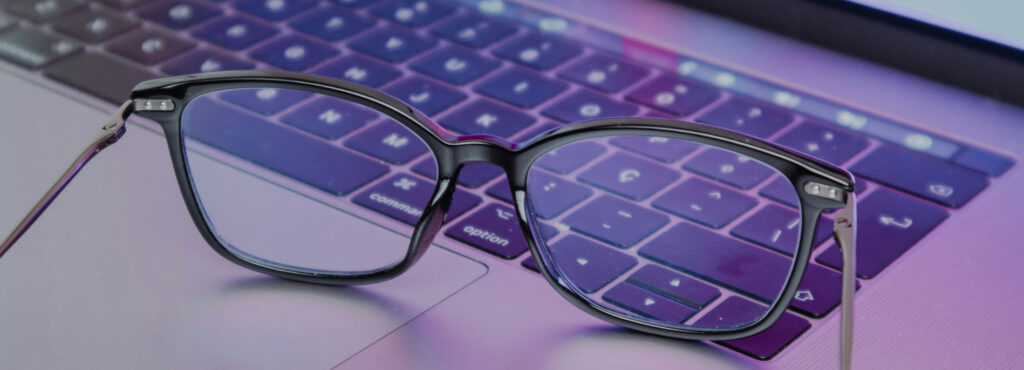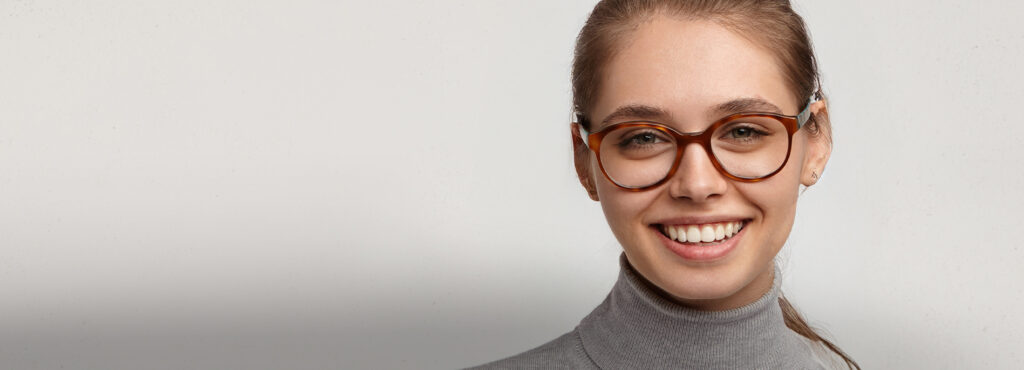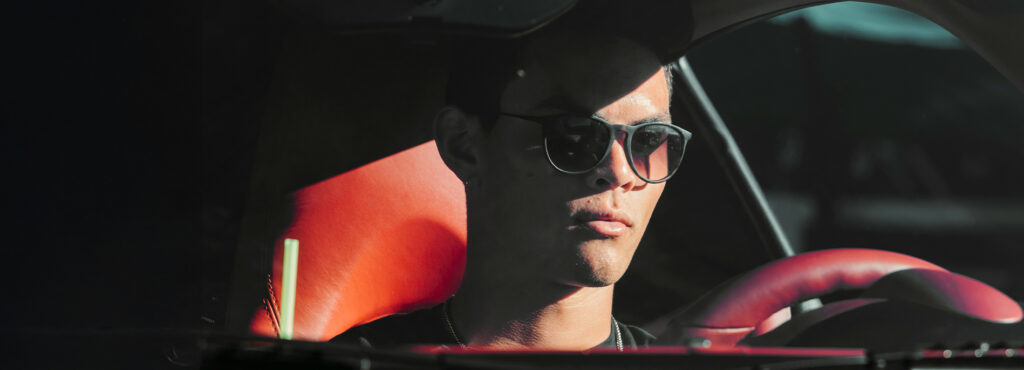In today’s world, digital screens are central to our lives, from smartphones and tablets to computer screens at work. Alongside this shift has come rising concern about the effects of blue light on the eyes, visual performance, sleep, and overall wellbeing. Opticians, the media, and even the College of Optometrists have weighed in, but what does the scientific evidence actually show? Are blue-light blocking filters worth it?
What is blue light?
Sunlight contains all the colours of the visible light spectrum (the range of light visible to the human eye). This includes red, orange, yellow, green, blue, indigo, and violet — which together become the white light we see.
Blue light is a high-energy, short-wavelength part of the light spectrum (approximately 380–500 nanometres), meaning it carries more energy than colours like red or yellow. Blue light comes not only from the sun but also from artificial light sources such as digital screens, fluorescent lighting, and LEDs. Because it’s particularly intense, people have raised concerns about the potential effects of how both the amount of blue light emitted from digital devices — and the extended time people spend in front of them — might affect eye health and overall wellbeing.
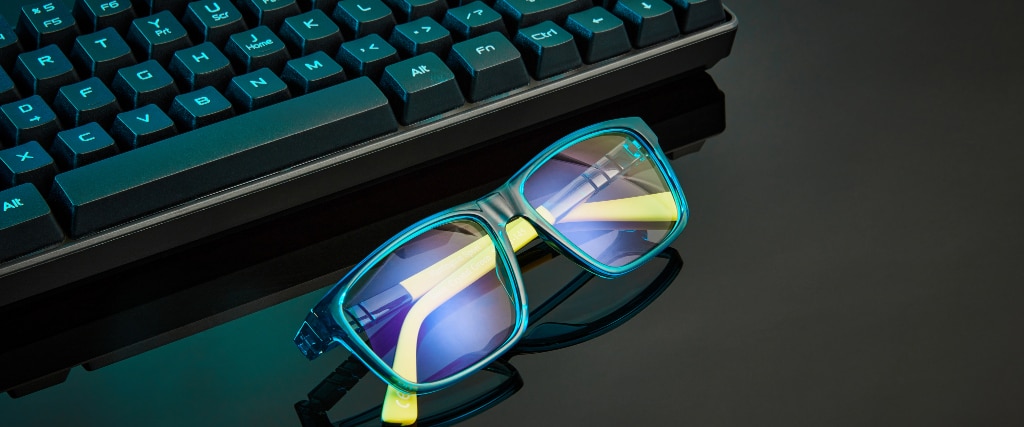
How do blue light glasses work?
Blue light glasses have a special coating on the lenses that filters out or reduces the amount of blue light that reaches your eyes. This helps to minimise eye strain from extended exposure to digital screens.

Does blue light harm the eyes?
Systematic reviews and clinical trials have carefully examined whether blue light affects the retina, cornea, or other parts of the eye. In some laboratory studies, very high doses of blue light have been shown to affect retinal cells at the back of the eye. However, the amount of blue light emitted from everyday digital screens is far lower than these experimental conditions.
Current research from the College of Optometrists and other professional bodies suggests that blue light from artificial light sources like smartphones, computer screens, and other digital devices doesn’t cause permanent retinal damage.
“There is no strong evidence that blue-blocking spectacle lenses will improve visual performance [or] alleviate symptoms of eye strain…” – College of Optometrists.
UV light, on the other hand, is well established as harmful and can lead to conditions like cataracts and macular degeneration.
That said, spending long stretches in front of screens can cause discomfort. Unlike natural sunlight, artificial blue light lacks the full colour spectrum and gives off a higher proportion of blue wavelengths, which can make it feel harsher on the eyes. The most common complaint is visual fatigue or digital eye strain. Prolonged computer use reduces blink rate and forces the eyes to maintain near focus, which can lead to symptoms like dry eyes, light sensitivity, headaches, and blurred vision. These symptoms are often referred to as ‘computer vision syndrome’.
While eye strain is more about visual demand than the effects of blue light itself, many people find that blue light glasses make their screen use more comfortable.
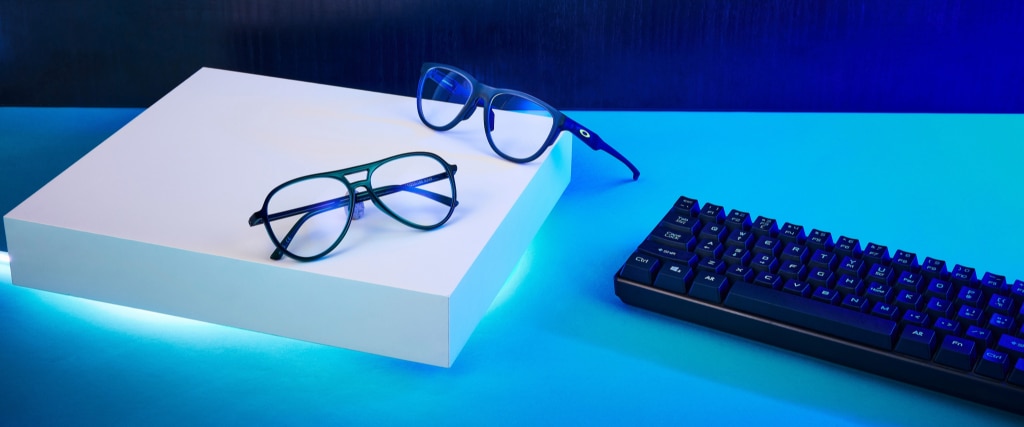
Blue light and sleep disruption
One area where blue light does have a measurable effect is on sleep. It affects melatonin, the hormone that signals to the body that it’s time to rest. Natural blue light from the sun boosts alertness during the day and helps regulate circadian rhythms. But evening exposure to digital screens and artificial light can trick your brain into thinking it’s still daytime. This delays sleep and disrupts natural sleep cycles.
A randomised controlled trial published in the Journal of Psychiatric Research (2017) found that people who wore blue-light blocking glasses in the evening reported significant improvements in sleep quality and mood compared to those using clear lenses.
Similarly, a 2021 review in Chronobiology International showed that using blue-light blocking glasses for two hours before bed reduced sleep latency (the time it takes to fall asleep) and improved next-morning alertness.
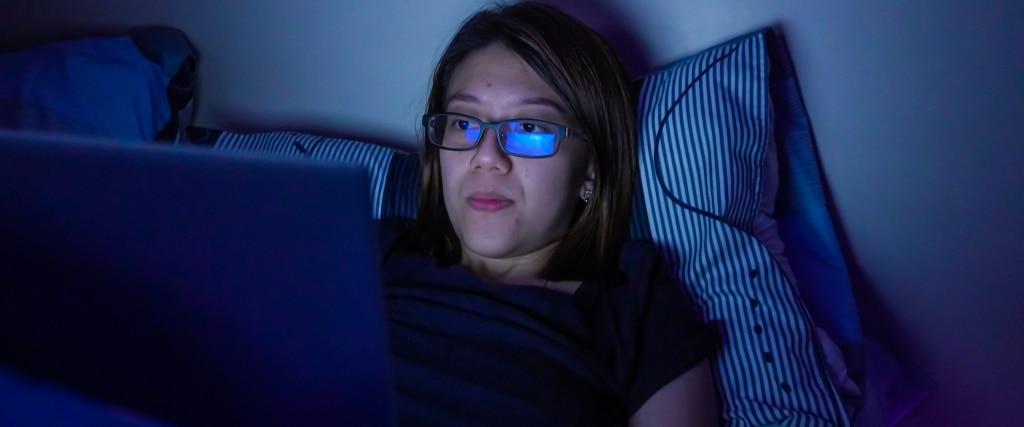
Are blue light glasses worth it?
Blue-light blocking filters are often marketed as a solution for eye strain, sleep issues, and long-term eye health. Here’s how they can help:
- For visual performance: The latest Cochrane Review (2023), which analysed 17 randomised controlled trials involving over 600 people, concluded there was no consistent evidence that blue-light filtering lenses improved visual performance or reduced eye strain compared with standard lenses. However, many everyday users still report a subjective improvement in comfort.
- For sleep: Wearing blue-light blocking glasses in the evening can reduce the stimulating effects of artificial light. This might make it easier to fall asleep.
- For eye health: Long-term protective benefits are still being researched, but reducing glare and strain is a clear short-term advantage.
- For visual fatigue: Even though the science is mixed, many people notice less discomfort with high-quality blue light filters compared to standard lenses or contact lenses.
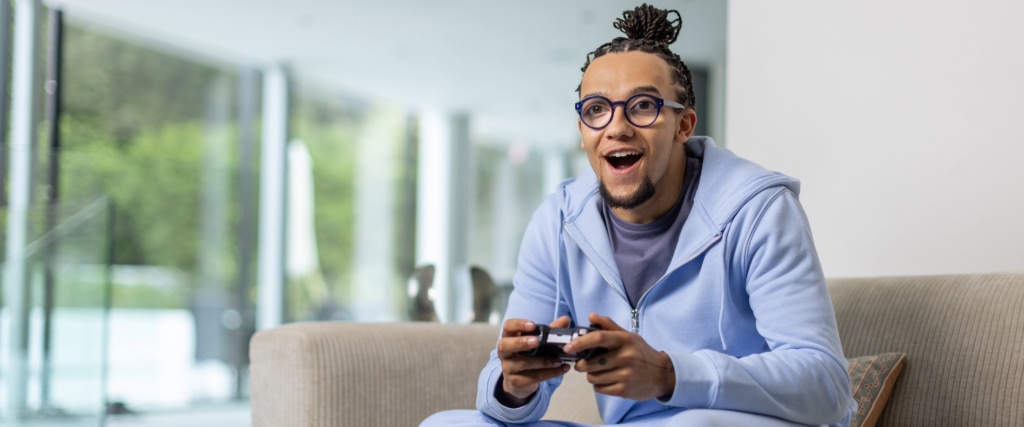
The best use of blue light filters
- Screen time: The average Brit spends around 7.5 hours in front of digital screens. Blue-light glasses are a simple way to add comfort during those long hours.
- Computer games: Gamers spend extended periods in front of screens. Gaming glasses with blue-light lenses can make long sessions more comfortable.
- Night-time driving: Blue-light glasses, especially those with anti-glare coatings can shield your eyes from harsh LED headlights.
Practical tips to reduce discomfort
Whether or not you use blue light glasses, these simple habits can also help:
- Follow the 20-20-20 rule: Every 20 minutes, look at something 20 feet away for 20 seconds.
- Manage light sources: Reduce glare with good room lighting and adjust your screen brightness.
- Blink more often: Keep eyes moist naturally or use artificial tears if needed.
- Limit evening screen time: or switch on night mode for a warmer display on smartphones and computer screens.
- Get regular eye exams: Your optician can check for underlying issues or update your prescription.
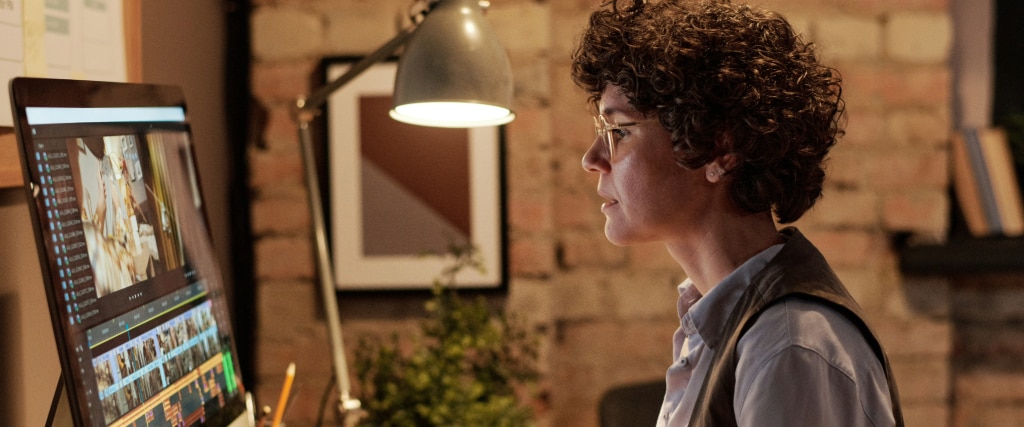
The bottom line
While scientific evidence from clinical trials and systematic reviews on long-term protective effects for the general population is still developing, blue light glasses remain a popular and practical option for many people. They can reduce glare, make screen time more comfortable, and support healthier sleep habits when worn in the evening.
Combined with healthy screen use and regular eye care, blue-light filtering lenses are an easy, low-risk way to improve day-to-day visual performance and comfort in our digital world.

